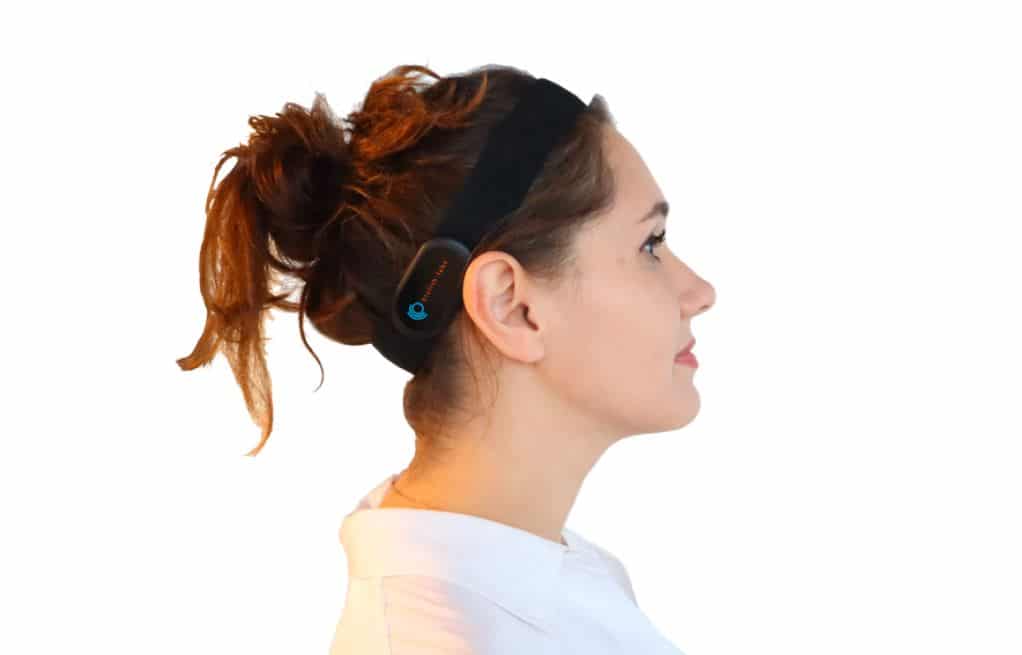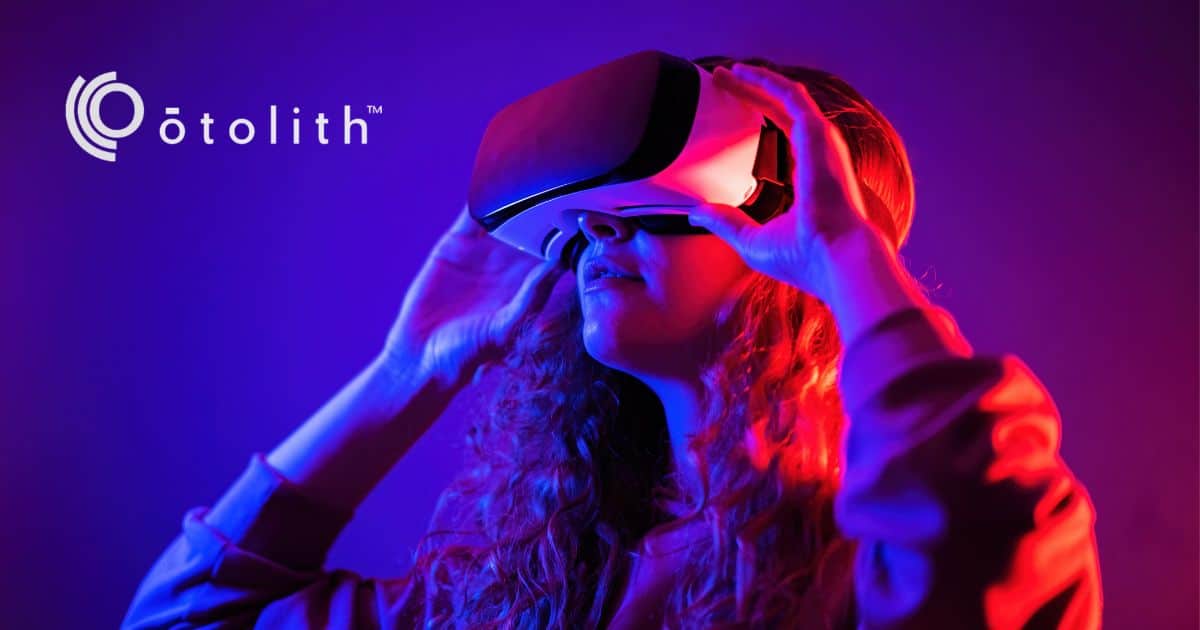WASHINGTON, D.C. – Otolith Labs, a medical technology company developing prescription medical devices for vestibular disorders, has announced findings from an exploratory user study evaluating the impact of vestibular stimulation technology on cybersickness during virtual reality (VR) experiences. The study results indicate that subjects using Otolith technology reported lower nausea levels and longer VR engagement durations compared to those without stimulation.
The findings suggest that Otolith’s vestibular stimulation technology may help mitigate cybersickness in highly immersive virtual environments.
“For Otolith, while VR is not our direct focus, this study is a foundational step toward understanding how visual stimuli interact with vestibular function. Cybersickness from VR has important research applications because, unlike vertigo, which may be episodic, the onset of VR-induced motion sickness can be controlled, which allows us to utilize these occurrences for clinical research”
–Didier Depireux, PhD, Otolith Co-Founder, Chief Science Officer, and Study Co-Author
Research Insights on Vestibular Stimulation and Cybersickness
The exploratory user study was conducted by Shamus Smith, et al. between 2020 and 2021. It was conducted at the University of Newcastle. 30 healthy individuals were recruited, 9 female and 21 male, with an age range of 19-37 years.
Participants completed the Motion Sickness Susceptibility Questionnaire (MSSQ) and demographic questionnaire. They were assigned to three groups:
- Device Group 1 (low stimulation setting),
- Device Group 2 (medium stimulation setting)
- Control Group (no stimulation device)

Otolith’s headband device applies localized mechanical stimulation to the vestibular system through calibrated vibrations to treat vertigo symptoms.
All participants were fitted with an Oculus VR headset and a VR roller-coaster simulation ride was activated. Participants in the device groups were fitted with an Otolith device positioned on the mastoid behind the right ear. For the duration of the VR simulation ride, participants provided verbal reports of their nausea. Directly after the ride, participants completed a Motion Sickness Assessment Questionnaire (MSAQ).
While the control group held expected relationships between perceived susceptibility and experienced motion sickness, neither device group did. This indicates that the Otolith device stimulation had a positive influence on the motion sickness brought on by the virtual experience.
“Millions of Americans endure the challenges of vestibular disorders every day, with limited non-invasive treatments available. Otolith is developing a novel wearable vestibular stimulation device designed to reduce chronic vestibular symptoms and allow users to maintain tasks of daily living. We are thrilled to see these study results demonstrate the effectiveness of our technology,” said Jon Akers, Otolith Co-Founder and Chief Technology Officer.
The full study is available at Frontiers: www.frontiersin.org/journals/virtual-reality/articles/10.3389/frvir.2024.1478106/full.
About Otolith Labs
Otolith Labs is developing prescription medical devices for the treatment of vestibular disorders, conditions experienced by millions of Americans. Otolith’s patented technology, which received Breakthrough Device Designation from the FDA for the treatment of chronic vertigo, uses precisely tuned vibrations to interact with the acceleration sensors in the inner ear, mitigating the symptoms of vertigo. Otolith is conducting clinical trials to evaluate its technology as an immediate symptom-relief treatment for chronic vertigo associated with vestibular disorders.
About the University of Newcastle
The University of Newcastle is a public university in Newcastle, New South Wales, Australia. Established in 1965, it is committed to its core values of equity, excellence, engagement, and sustainability. The University is a globally respected education institution dedicated to solving the world’s most pressing challenges. With three Colleges and 20 Schools, it oversees the education of more than 37,000 students.
Source: Otolith Labs






